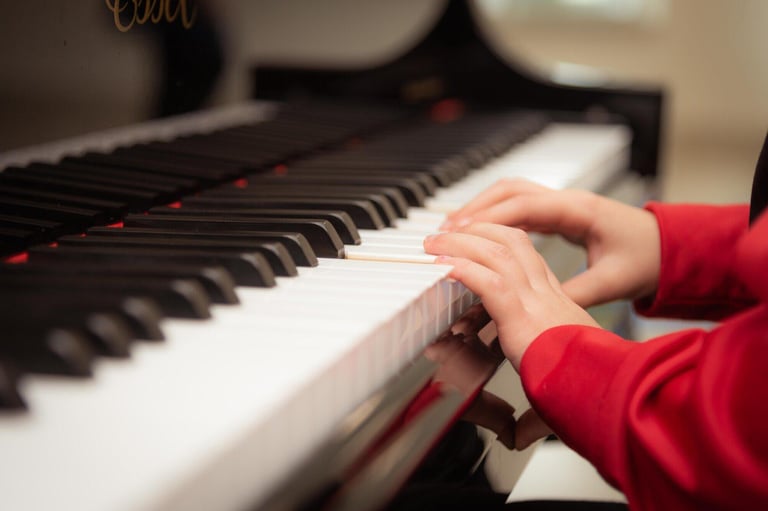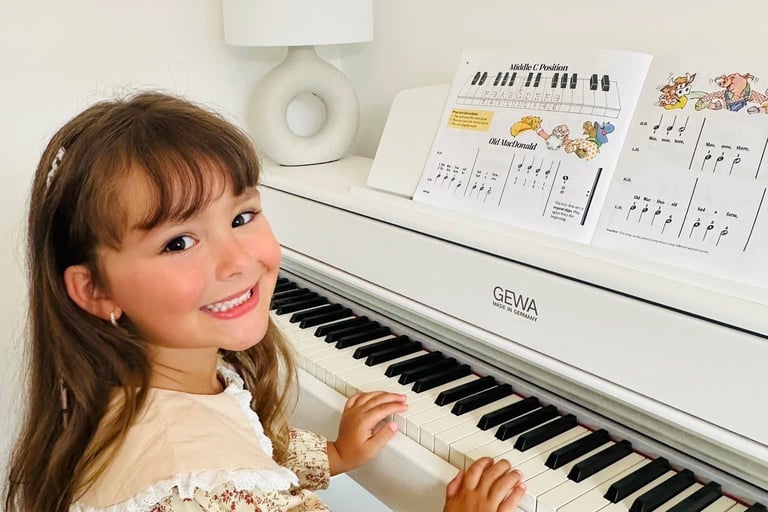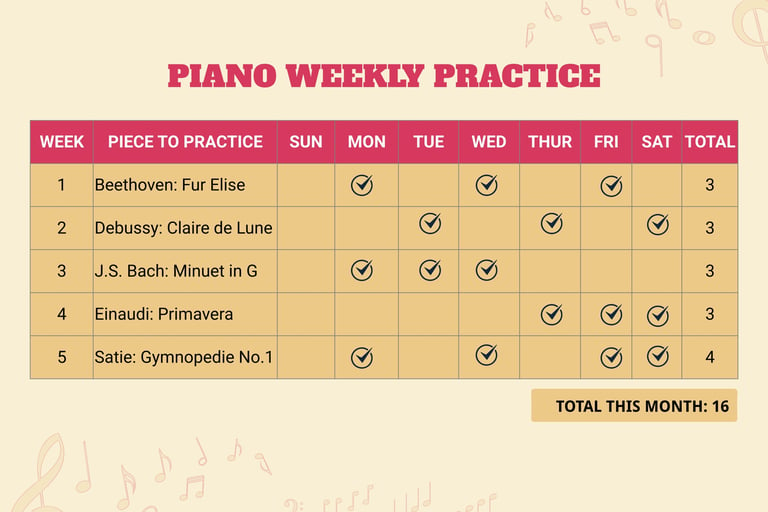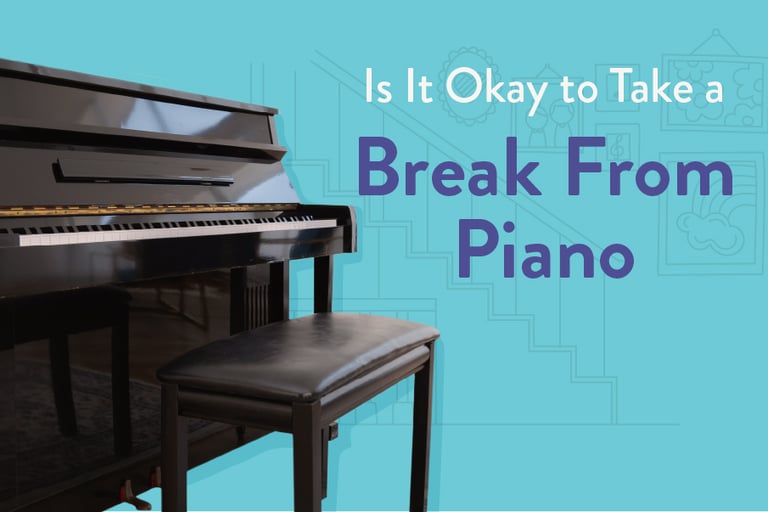Should You Practice Every Day? Tips For Finding The Right Balance
Life gets hectic - between school assignments, office deadlines, and everything in between, finding time to practice can feel impossible. But is daily practice really the key to mastery? This blog helps you build a balanced routine that maximises progress without burnout or guilt when you miss a day. Whether you're a beginner or an advanced player, discover expert tips for making your practice effective, enjoyable, and sustainable!
MUSIC PRACTICELEARNING STRATEGIES
Should You Practice Every Day? Tips For Finding The Right Balance
If you've ever taken up an instrument (or really any skill), you've probably heard the golden rule: "Practice every day!" While that advice is well-intentioned, is it really the best approach? Let’s break it down and find the sweet spot between dedication and burnout.


Why Daily Practice Works
🏃🏻♀️➡️ Momentum Matters – Playing every day helps your brain and fingers stay in sync. When you practice regularly, you reinforce what you’ve learned, making each session feel smoother. It also prevents the "relearning curve," where you spend time reviewing what you forgot rather than progressing forward.
🧠 Muscle Memory is Real – Repetition strengthens neural connections, making complex passages feel natural over time. When you repeatedly play a piece, your fingers begin to instinctively know where to go, reducing hesitation and improving fluidity. This is particularly crucial for fast passages, technical exercises, and intricate fingerings.
🚶🏻♂️➡️Small Steps, Big Wins – Even just 10-15 minutes daily can add up to massive progress over weeks and months. A short but focused practice session can lead to breakthroughs in technique, timing, and expression, as the brain retains information better with regular reinforcement.
🎹 Stronger Connection with Your Instrument – Practicing daily builds familiarity, not just physically but emotionally. Over time, your instrument becomes an extension of you, responding intuitively to your touch, dynamics, and interpretation.
If you can manage daily practice without feeling overwhelmed, go for it! But here’s the catch—life happens, and sometimes, a rigid schedule can do more harm than good.
The Case for Daily Practice
Practicing every day builds consistency, muscle memory, and a deeper connection with your instrument. It’s like brushing your teeth - skip a few days, and things start to feel a little off.


The Burnout Trap
While dedication is admirable, forcing yourself to practice every single day without a break can lead to frustration, exhaustion, and even resentment towards your instrument. (And let’s be real, nobody wants to resent their beloved piano or keyboard.)


Signs You’re Overdoing It
🤷🏻♀️ Lack of Focus – If your mind keeps wandering or you’re just going through the motions, you might be practicing too much.
🥱 Physical Fatigue – Sore hands, tense shoulders, or even pain? Your body is telling you to ease up.
😵💫 Mental Exhaustion – If you feel uninspired or dread practice time, you might need a mental reset.
❗️Diminishing Returns – If you’re practicing but not seeing improvement, you could be pushing too hard without giving your brain time to process.
So, if seven days a week is too much, but consistency is key, what’s the ideal practice schedule? The answer depends on your goals, energy levels, and personal learning style.


Finding the Right Balance
Flexible Approaches to Practicing
🗓️ The 5-6 Day Plan – Practice most days, but allow yourself one or two rest days to reset and come back refreshed. This is a great middle ground for serious learners who don’t want to risk burnout.
🎹 The Focused Short Sessions – If you’re short on time, aim for 15-20 minutes of mindful, goal-oriented practice rather than long, unfocused sessions. Quality always beats quantity.
🎶 The Alternating Routine – Some musicians thrive by mixing intense practice days with lighter ones. For example, practice technique-heavy exercises on Monday, work on a song Tuesday, improvise Wednesday, and so on.
🎯 The Goal-Oriented Approach – Instead of practicing for a set amount of time, set small goals. Maybe you’ll work on mastering a specific run, improving your timing, or refining your dynamics. Once you hit the goal, you’re done for the day!
The Importance of Rest and Reflection
🧠 Your Brain Keeps Working – Even when you’re not playing, your brain processes and strengthens musical patterns.
⚠️ Prevents Injury – Overuse injuries are real, especially for pianists and guitarists. A day off can help prevent strain.
💡 Boosts Creativity – Sometimes stepping away from your instrument gives you fresh ideas and a renewed passion.
Rest doesn’t always mean doing nothing! You can stay engaged by:
🎧 Listening to music – Analyse and enjoy great performances for inspiration.
🎹 Visualising playing – Picture yourself nailing a tricky passage (this actually helps!).
🎼 Studying theory – Deepen your understanding of what you’re playing.


Breaks aren’t just about giving your fingers a rest; they actually help your brain consolidate what you’ve learned. Studies have shown that sleep and short breaks significantly improve skill retention.
How Rest Helps
?
Listen to Yourself
At the end of the day (or practice session), your best guide is… YOU! Pay attention to how you feel. If you’re energised and excited, keep going. If you’re exhausted and uninspired, maybe today’s the day for a mental reset (or just a fun jam session).


Signs You’re in a Good Practice Routine
🥰 You look forward to playing.
📈 You feel progress over time.
💪🏻 You leave practice sessions feeling accomplished, not drained.
❤️ You still love your instrument!
🎶 Final Thoughts 🎶
Practicing every day isn’t a one-size-fits-all rule. What’s important is consistency over time, not perfection. Some days, you'll crush it. Some days, you'll struggle. And some days, you'll just need a break. And guess what? That’s okay!
Find a practice rhythm that works for you, and most importantly—enjoy the journey. Because at the end of the day, music (or any skill) is meant to bring joy, not stress!


Happy practicing! 🎹🥁🎸🎻✨
Share this on:
About The Author


Padmavathy Divakaran is a distinguished pianist, arranger, and music educator, currently serving as the Director of Aum Piano Studio. Formerly the representative for MTB Exams in Tamil Nadu and Karnataka - a globally recognised music education board based in the UK - she has consistently championed excellence in music education. Padmavathy holds a BA (Honours) in Music from Middlesex University, London, and a Diploma in Higher Education – Music from KM College of Music and Technology, Chennai. Her outstanding talent has been recognised through multiple scholarships and awards, including those presented by Dr. A.R. Rahman. As a performer, she has showcased her versatility across classical and contemporary genres, playing with orchestras in both London and Chennai. She was a core member of the Roliwood Seaboard Ensemble, playing a key role in the global launch of the ROLI Seaboard. Her artistry has earned her the honour of performing at prestigious events, including a special performance for Prince William, Simon Cowell, and other notable personalities at The Founders Forum in the UK - a testament to her global reach and artistic impact.